Jimmy Greaves: Legendary England, Spurs and Chelsea goalscoring genius and broadcaster
Greaves made his name as a prolific striker for both club and country before endearing himself to the nation as the popular co-host of ‘Saint and Greavsie’
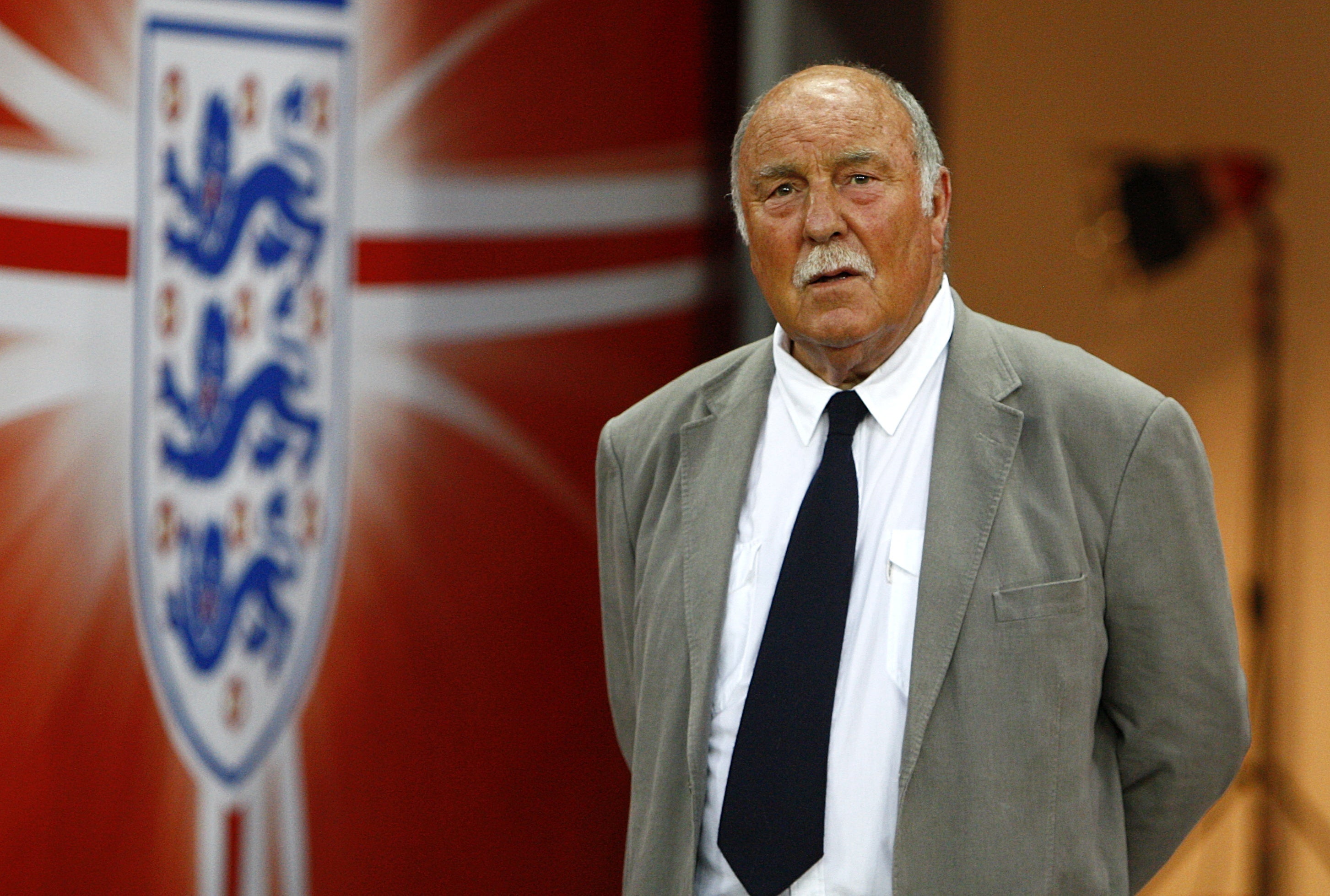
Your support helps us to tell the story
From reproductive rights to climate change to Big Tech, The Independent is on the ground when the story is developing. Whether it's investigating the financials of Elon Musk's pro-Trump PAC or producing our latest documentary, 'The A Word', which shines a light on the American women fighting for reproductive rights, we know how important it is to parse out the facts from the messaging.
At such a critical moment in US history, we need reporters on the ground. Your donation allows us to keep sending journalists to speak to both sides of the story.
The Independent is trusted by Americans across the entire political spectrum. And unlike many other quality news outlets, we choose not to lock Americans out of our reporting and analysis with paywalls. We believe quality journalism should be available to everyone, paid for by those who can afford it.
Your support makes all the difference.Jimmy Greaves scored goals for fun, literally. Yet while the baggy-shorted Eastender played his football with the jaunty air of an eternal schoolboy, the gleeful audacity which was central to his enduring popular appeal could not mask the ruthlessness which made him, arguably, the deadliest marksman in the history of British soccer.
An instinctive opportunist blessed with blinding speed both of movement and thought, Greaves, who has died aged 81, compiled the phenomenal total of nearly 500 senior goals, the majority of them stroked into opponents’ nets with clinical economy after he had popped up, as if from nowhere, in precisely the right spot at the right time. One moment drifting nonchalantly on the periphery of the action, the next he would dart unerringly to its very heart, and invariably the effect was lethal.
Further, Greaves was that rare being, a specialist predator with all-round talent to burn, a coruscating entertainer capable of dribbling past half a team before hitting his target if the need arose. Usually, thanks to his supreme positional sense, such extravagance wasn’t required.
Greaves’s gifts were exclusively of the natural variety; he did not relish training and he was an anathema to certain hardline coaches who dismissed him as lazy. But his sensational record, especially when wearing the shirts of Chelsea, Tottenham Hotspur and England, gave rather more credibility to the view of the late Joe Mercer, one of the shrewdest of all football men, who described Jimmy Greaves as “a blinking little genius”.
Renowned as a drinker throughout his career, he fell prey to alcoholism when his playing days were spent, and his subsequent successful rehabilitation represented an even greater personal achievement than all his sporting triumphs.
The son of a London Tube train driver, Greaves was a soccer-mad infant prodigy who flopped his eleven-plus examination on purpose to avoid the chance of being sent to a rugby-playing grammar school. Soon he was scintillating in schoolboy football and was on the verge of joining Spurs, whom he supported, only to be overlooked by the White Hart Lane club during the managerial transition from Arthur Rowe to Jimmy Anderson, a costly piece of confusion.
Instead, at Easter 1955 he enlisted with Chelsea, who were on the verge of becoming League champions for the first in the club’s history. His progress was meteoric as he plundered more than 150 goals in two seasons with the Pensioners’ junior teams, emerging as the pick of Ted Drake’s Ducklings, the tag allotted to the club’s precocious youngsters as a southern riposte to Matt Busby’s Babes at Manchester United.
Ironically Spurs were the opponents for Greaves’s senior entrance as a 17-year-old in August 1957 and he scored that day, as he did on debut at virtually every level throughout his career.
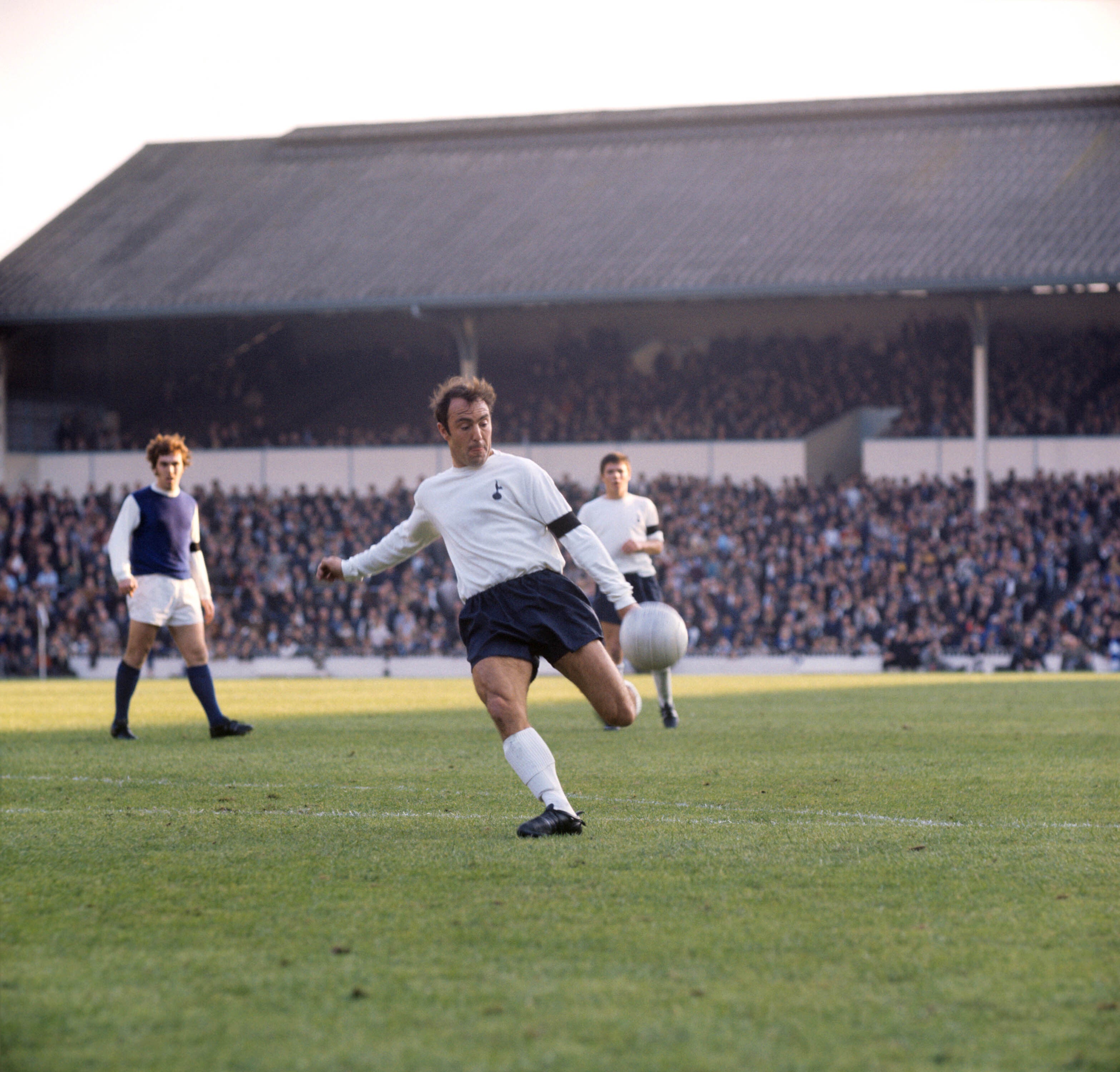
Thereafter the ebullient boy wonder cemented his place in the side, and underlined his limitless potential with a four-goal show against Portsmouth on Christmas morning, the first of an astounding quarter-century of hat-tricks in the English top flight.
Small but wirily resilient enough to withstand the inevitable buffetings dispensed by frustrated defenders, Greaves went on to enjoy three more campaigns of unprecedented bounty for Chelsea. In his third start of 1958-59 he netted five against the champions, Wolverhampton Wanderers, and finished the campaign as the First Division’s leading marksman with 32 goals. In 1959-60 he struck 29 times in the league, then stepped up to a barely believable 41 goals in 40 outings during 1960-61, by which time he was a regular England international and one of the most sought-after footballers in the world.
Sadly, from a Stamford Bridge perspective, the fact was that Greaves had outgrown a moderate Chelsea team which had been relying heavily on his goals to keep it in the top flight and eventually he grew disillusioned at the lack of prospects. A combination of professional and financial ambition led to several rows, and in the winter of 1960 he agreed to join AC Milan in an £80,000 deal.
The transfer was ill-starred from the outset. Having succumbed to the lure of untold wealth in Italy at a time when English players were subject to a maximum wage of £20 per week, that archaic restriction was lifted and his international teammate Johnny Haynes, just down the road at Fulham, became the Football League’s first £100-per-week footballer.
Immediately Greaves regretted his move, which was delayed until season’s end due to changes in the Italian rules for employing foreigners, but that was nothing to the anguish he would suffer after arriving in Milan. His free spirit could not cope with the draconian regime imposed by his new employers, which involved long spells in closed training camps, and he resented being disciplined for his frequent rebellions; he felt trapped and undervalued, despite scoring a highly creditable nine goals in 14 outings in the ultra-tough Italian league, and his chronic homesickness was compounded by language problems. Conceivably, too, it was during this period of torment that Greaves laid the tragic foundations of his subsequent descent into alcoholism; certainly that was his own contention.
The ordeal continued for four miserable months, during which he considered giving up the game, before he was rescued in December 1961 by Tottenham Hotspur, who outbid Chelsea to sign him for £99,999, manager Bill Nicholson insisting on the tiny reduction necessary to spare him the pressure of becoming England’s first £100,000 footballer.
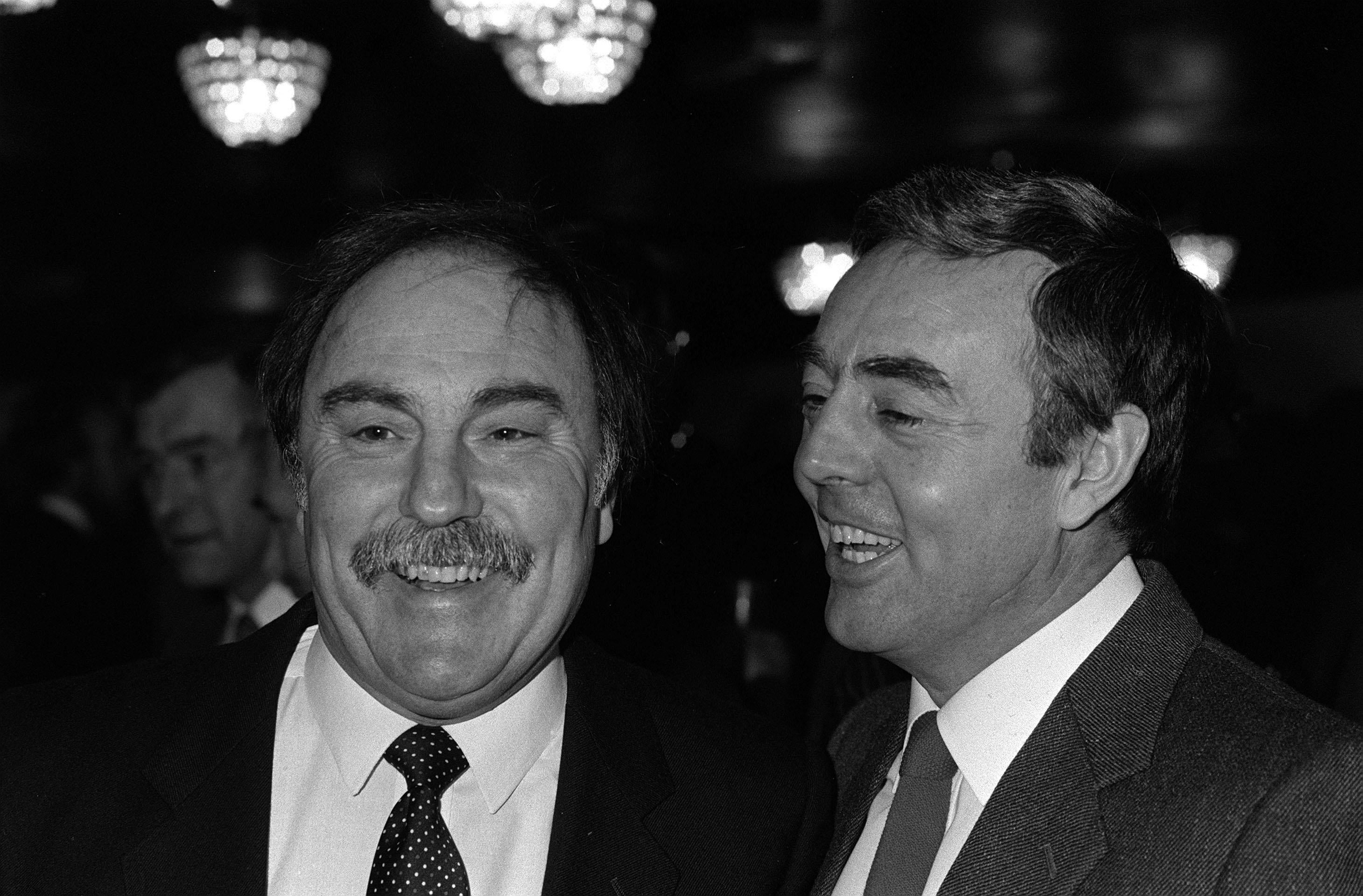
Back on home soil and playing for the club of his choice – which had just made history as the first to lift the league and FA Cup double during the 20th century – Greaves had everything his heart desired, and he responded with nearly a decade’s worth of majestic service, his impudence and guile matched only by his accuracy and composure, his prowess with his frighteningly destructive left foot exceeding only slightly that with his unfavoured right.
After attracting a crowd of 13,000 fans to Home Park, Plymouth, for his debut for Spurs reserves, he completed a fabulous hat-trick against Blackpool on his first senior appearance, and an avalanche of goals followed, including a brace in the 5-1 drubbing of Atletico Madrid in the 1963 European Cup Winners’ Cup final and the winner for England against the Rest of the World in the FA Centenary game later that year.
In his first three and a half Tottenham terms he netted 143 times, becoming the first man to top the First Division chart in three consecutive seasons and shattering a bevy of other records.
Not that everything worked out perfectly for Greaves during his White Hart Lane sojourn. Though he helped to lift the FA Cup in the 2-1 defeat of Chelsea in 1967, he bitterly regretted never pocketing a league championship medal. In truth, despite his own free-scoring exploits, Nicholson’s superb double-winning team declined slowly as the decade progressed, never mounting another sustained title challenge.
Danny Blanchflower retired, John White was killed by lightning, Bobby Smith went to seed, Cliff Jones slowed down through age and injuries, and although the magnificent Dave Mackay remained a towering influence and Greaves formed a productive new liaison with Alan Gilzean, the side never quite gelled in the same way.
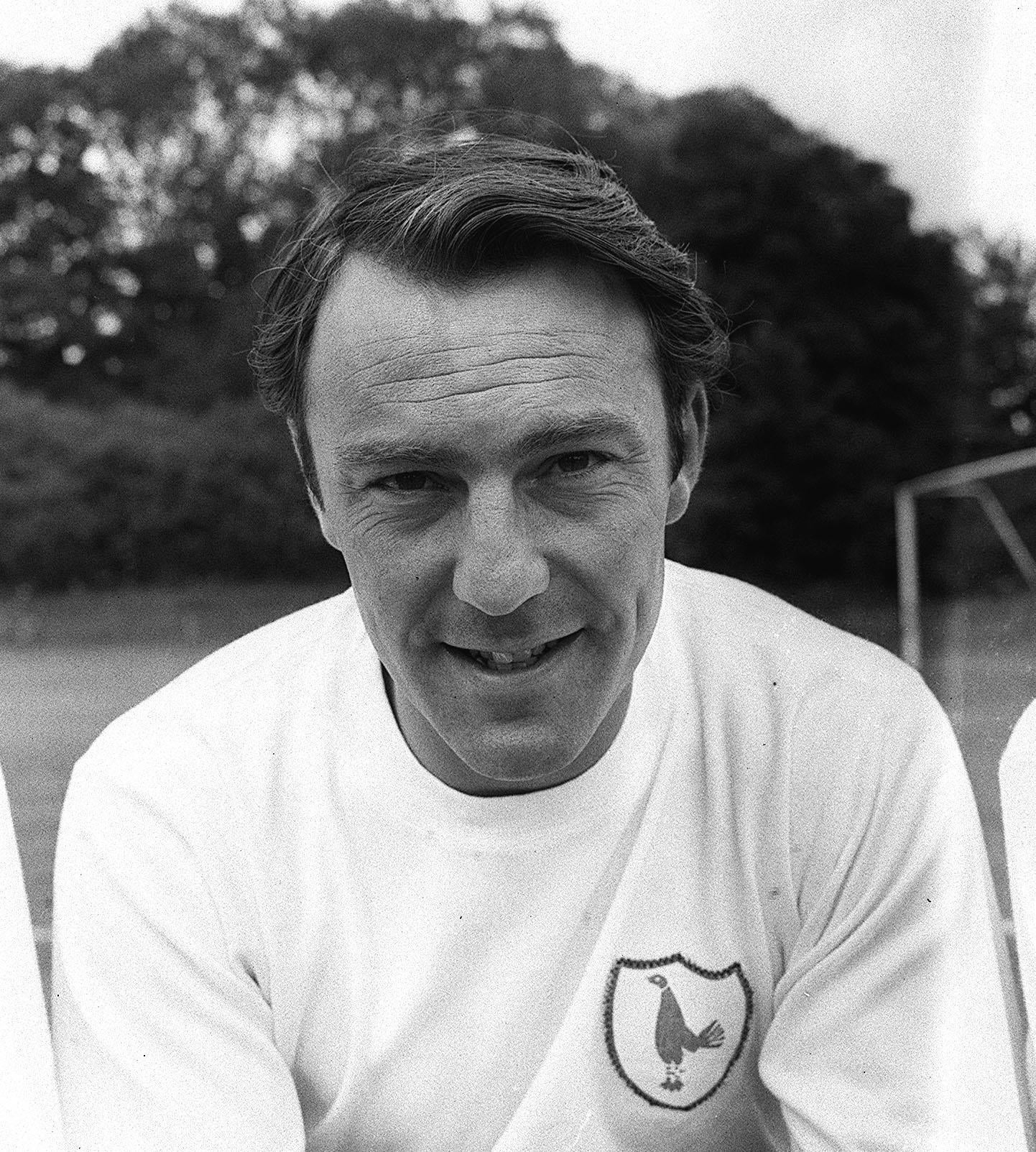
Meanwhile at international level, there was an even more desperate disappointment to bear. Having recovered from a strength-sapping bout of hepatitis which sidelined him for the winter of 1965-66, Greaves returned to his national team in time for the following summer’s World Cup tournament in England.
After suffering a gashed leg against France, Greaves was replaced by Geoff Hurst for the quarter-final against Argentina and the semi-final against Portugal, regaining fitness in time for the final clash with West Germany.
However, manager Alf Ramsey preferred to stick with Hurst for the most important day in the nation’s soccer history, thus utterly devastating the infinitely more gifted if less obviously industrious Greaves. In the event, Ramsey was vindicated as the West Ham man contributed a hat-trick to England’s 4-2 triumph, but it was impossible not to feel sorry for Greaves, who had been deprived of what many believed to be his rightful role in the match of a lifetime.
Though beginning to drink ever more relentlessly, he recovered manfully from the shattering reverse to serve Spurs for four more years before losing form and being dropped by Nicholson in January 1970. At that time he had become passionately interested in motor rallying, perhaps to the detriment of his football, and two months later he accepted a surprise move to West Ham, valued at £54,000 in the transaction that took Martin Peters to Tottenham.
Later Greaves would admit to regret at spurning an approach by Brian Clough of Derby County, but with his burgeoning business interests in the capital and his preparations to take part in the forthcoming London-to-Mexico World Cup Rally, it seemed like a convenient option.
Having arrived at Upton Park, where he joined his close friend and drinking partner Bobby Moore, he helped the Hammers to avoid relegation that season.
But after 1970-71 brought another marginally successful struggle against demotion, the 31-year-old, increasingly demoralised by the downturn in his playing fortunes, opted for early retirement. Later he admitted that it had been a terrible mistake, pointing out that although his game had lost much of its characteristic zest, he still had plenty to give.
Instead Greaves played non-League football for Brentwood, Chelmsford and Barnet, worked in his businesses, and drank so immoderately that he destroyed his marriage and almost his life. At his lowest point in the mid-to-late 1970s, his daily routine consisted of downing up to 20 pints of beer in pubs, then heading home to polish off a bottle of vodka. On one occasion, with no alcohol readily to hand, he ransacked a dustbin for empties from which he drained the dregs, an incident recounted in his moving autobiography This One’s On Me (published by Arthur Barker in 1979).
In time he confronted his problem, which had begun as a release from the pressures of top-level football, and submitted to several years of treatment, which enabled him to resume a normal life and effect a reconcilation with his wife, Irene, from whom he was divorced.
Now Greaves forged a new career as a soccer pundit, experiencing particular success alongside former Liverpool and Scotland star Ian St John in ITV’s Satrurday afternoon magazine programme Saint and Greavsie which ran from 1985 until the channel lost the rights to broadcast top-tier English football matches as the newly formed Premier League contracted to Sky Sports in 1992.
Although the show predominantly dealt with football, it also covered sports such as cricket and boxing, with interviewees including Mike Tyson and Chris Eubank. When Greaves was ill at Christmas 1990, he was replaced by commentator Peter Brackley voicing a puppet modelled on him from Spitting Image, a show he had often featured on.
One of the more memorable episodes came in the 1991–92 season, when the Rumbelows Cup draw was broadcast on Saint and Greavsie. The away teams for the quarter-finals were drawn by Donald Trump, when the duo were in the United States to film a programme looking at how the country was preparing for the 1994 Fifa World Cup.
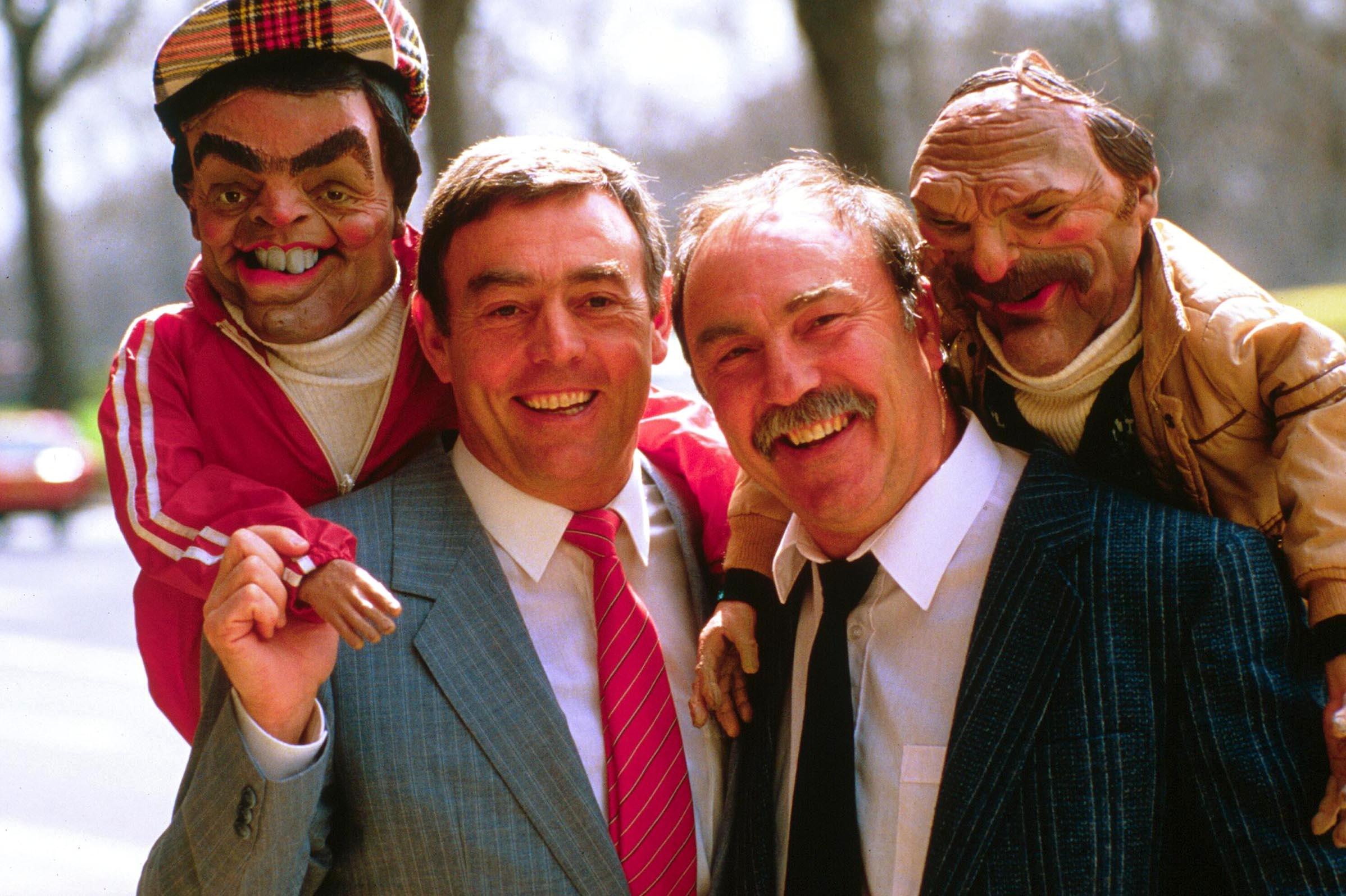
A subsequent attempt to host a chat show failed abysmally, though undismayed, he continued to make an excellent living as an after-dinner speaker, endearing himself to audiences with his combination of natural modesty and easy-going brand of streetwise humour. But what really riveted the attention of his listeners was the knowledge that they were in the presence of one of the few true footballing folk heroes, a man who scored more goals in the English top division – 357 in 516 matches – than anyone else before or since, who netted 44 times in a mere 57 outings for his country, an inspirational pickpocket who would have graced any team in any era.
The word “great” is fatuously overemployed in the field of sport, but in the case of Jimmy Greaves it is entirely appropriate.
Greaves battled with health in recent years after suffering a minor stroke in 2012 and a severe stroke in 2015, which left him wheelchair-bound and with severely impaired speech.
For all the pleasure his footballing skills had given the nation, it wasn’t until 2020 that he was recognised by the honours system, an online campaign securing an MBE in the new year honours list. Along with the former midfielder Ron Flowers, it meant that Greaves became the last surviving members of England's 1966 World Cup-winning squad to be honoured.
His son Danny posted a message on Facebook thanking his father’s teammates and colleagues, and the public, for the “tremendous support, love and kindness that you have shown my Dad over many, many years”.
“I think, if you have told my Dad, when he was a young boy, kicking a ball around and just doing what he loved to do, that he would be honoured by the Queen, he probably would have smiled and said something like, ‘Yeah, alright’.”
He is survived by his wife Irene, their four children, 10 grandchildren and great grandchildren.
James Peter Greaves, footballer and broadcaster, born 20 February 1940, died 19 September 2021


